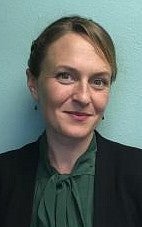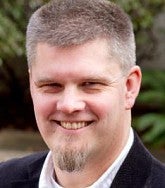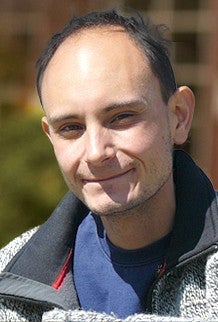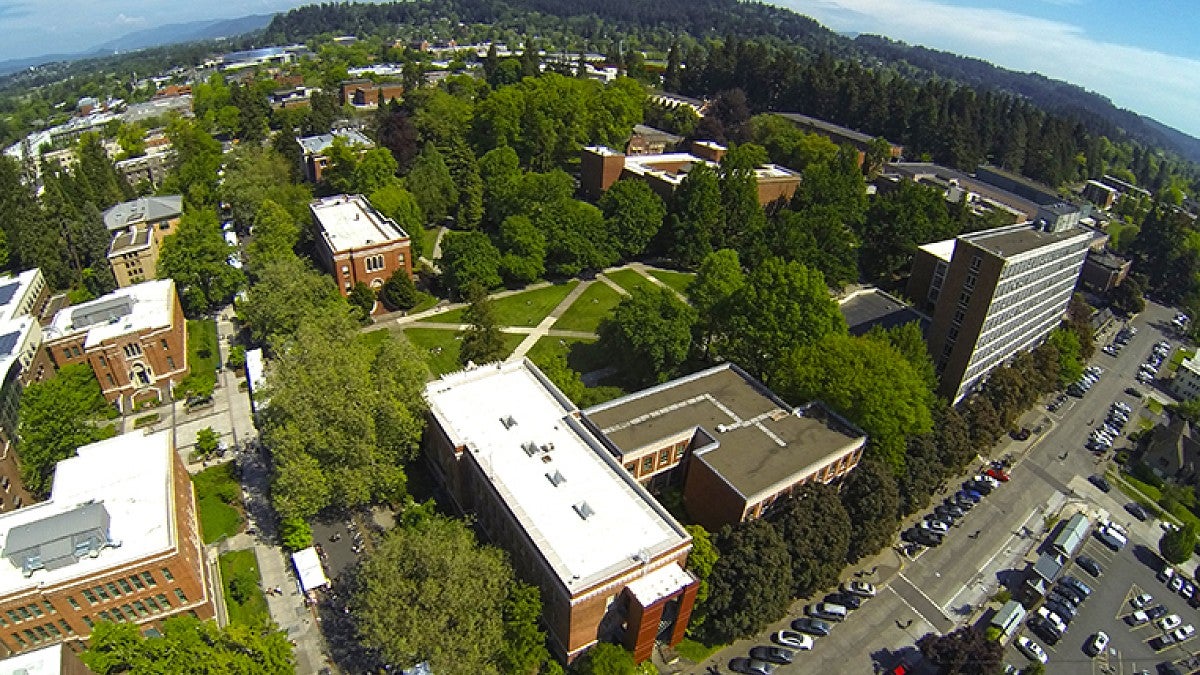Three faculty members in the College of Arts and Sciences have been awarded the 2022 Tykeson Teaching Awards for their excellence in teaching.
Kate Kelp-Stebbins, assistant professor of English; Eric Torrence, professor of physics; and Larry Ulibarri, instructor of anthropology, are this year’s recipients. One recipient is chosen from each of the three divisions across the College, which are humanities, natural sciences and social sciences.
Each year the Tykeson awards follow a theme, and this year’s awards are based on teachers who have demonstrated excellence in inclusive teaching. The conditions and obstacles students face during their academic journeys, including a disparity in academic outcomes between lower-income students, students of color, and nonnative English-speaking students, is known as the opportunity gap.
When choosing faculty members to receive this year’s award, deans rewarded efforts to close the academic opportunity gap for first-year, core education and major courses; to close the access gap to experiential learning opportunities; to introduce curricular innovation supporting inclusion and representation, and to use advising practices supporting inclusion and equity

Wonham went on to commend Kelp-Stebbins for her series of imaginative and impressive teaching methods within the comic studies department and pointed to the brilliant student comics that have been produced in her classes over the past few years.
“It’s a tremendous honor, and it’s really humbling to receive this award,” Kelp-Stebbins said. “It means so much right now. I know how much my students and I have been challenged by everything that's going on in terms of COVID and the war. This award meant more right now than I can really articulate. It feels like a testament to how much we've been through and to the ways in which we're together to get through it all.”

“Students consistently remark on his clarity, responsiveness, empathy and patience,” Sadofsky said. “Many consider him a role model. “Professor Torrence’s attention to his students and their success, while he pursues a highly active and visible research program, epitomize the ideals of the teacher-scholar.”
During the COVID pandemic, students were unable to attend in-person labs, creating an academic gap for student’s education. Torrence said that forced him to rethink how he taught the course. Torrence created the traditional hands-on lab experience for his students at home by sending out lab kits, allowing students to follow along from home but still work together as a class.
“The pandemic made me reevaluate what we were teaching, how I could make the course more efficient in this new environment, and only focus on the things that are the most important, because that was more valuable to the students,” Torrence said. “Receiving this award is a great honor, and it’s really nice to be recognized.”

“Dr. Ulibarri was experienced at teaching online well before most faculty were forced to do so by the COVID-19 pandemic, which has made him an important resource for other faculty who had to make the transition,” said Philip Scher, divisional dean for the social sciences. “One thing is clear from his teaching; he is clearly a favorite of the students.”
“I am grateful to the UO and my colleagues in the Department of Anthropology for their mentorship and advice and am honored to receive the Tykeson Teaching award,” Ulibarri said. “When we step into the classroom to talk about nutrition, animals, race, climate change, evolution, or war, the classroom transcends division. Success to me is the classroom that we build, full of hope and passion. Success is the student that we arm with knowledge and the scientific method, connect to opportunity, and motivate to take a chance to make a difference.”
—By Victoria Sanchez, College of Arts and Sciences


